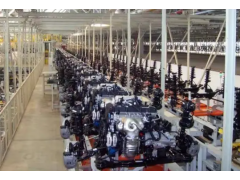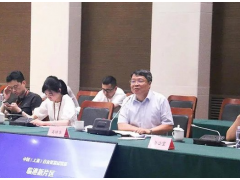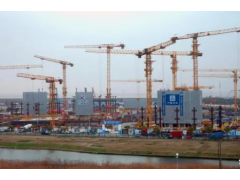The ASEAN Secretariat, the custodian of the Regional Comprehensive Economic Partnership (RCEP), has received a formal deposit of approval from the Philippines. According to the agreement, RCEP will come into effect for the Philippines on June 2. In the fiery June, the Philippines will officially join the RCEP family and feel the warmth of the tariff concessions granted by the member states.
Strong economic growth
The most direct benefit of the Philippines' participation in RCEP is tariff reduction. It is understood that most of the imports and exports of the Philippines (50% exports, 68% imports) come from RCEP member countries. According to the announcement issued by the Customs Tariff Commission of the State Council of China a few days ago, starting from June 2, some imported goods originating in the Philippines will implement the agreed tax rates applicable to RCEP ASEAN member states, and the subsequent annual tax rates will be implemented from January 1 of that year. With the reduction of tariffs, Philippine enterprises will obtain cheaper raw materials and intermediate products in the region, especially small, medium and micro enterprises and agricultural product manufacturers in the Philippines will obtain more flexible certification procedures from the RCEP system and enjoy more favorable trade arrange.
Zhou Mi, a researcher at the Research Institute of the Ministry of Commerce, believes that the implementation of RCEP will have two impacts on the Philippine economy. One is that the reduction of tariffs will help strengthen trade exchanges, and the Philippines can import more high-quality and cheap commodities. These commodities not only come from China but also from other RCEP members. country, will benefit Filipino consumers. On the other hand, the Philippine economy will gain new momentum as trade diversion and trade creation boost consumption. The Philippines’ economic performance in the first quarter was relatively good, and the full effect of RCEP will give it more momentum to keep its economy growing this year.
The economic growth of the Philippines in the first quarter of this year ranked first in ASEAN, far ahead of other ASEAN countries, and it is the country with the best economic development in Southeast Asia. According to data released by the Philippine National Bureau of Statistics, the Philippine economy grew by 6.4% year-on-year in the first quarter, which was slower than the 7.1% growth in the previous quarter due to high inflation. The data showed that the contribution to economic growth in the first quarter mainly came from wholesale and retail trade, motor vehicle repair, finance and insurance and other service industries. Major economic sectors such as agriculture, forestry and fishery, industry and services all achieved positive growth.
Broad space for enterprise development
As a milestone of regional economic integration, RCEP will promote trade between Philippine enterprises and enterprises of other member countries, and increase more trade and investment opportunities. After RCEP came into force for the Philippines, all 15 members have completed the entry into force procedures and implemented tariff concessions with each other, and the agreement has entered a new stage of full implementation.
Zhou Mi said that for foreign trade enterprises, the full implementation of RCEP, just as we predicted when we promoted the signing of RCEP, will give enterprises a broader space for development. The market created by RCEP is not only huge in scale, but also has strong diversity and different development stages, making it possible for companies to explore new markets. Moreover, some rules of RCEP, such as the cumulative rules of origin, can enable foreign trade companies to improve the resilience of the supply chain, thereby effectively reducing costs.
However, Zhou Mi believes that the most important thing for RCEP at present is to translate the rules into practical actions as soon as possible. In particular, these economies that have just integrated need to shorten the process of transforming the RCEP agreement into domestic laws and regulations. If the process can be shortened, it will help the agreement to take effect faster.
Zhou Mi said: "RCEP itself is not a perfect agreement. We should learn from the practice of enterprises and the feedback from the market which regulations need to be strengthened, the coordination of standards and rules among countries, the mutual recognition of technical standards, and the market's Access should be further promoted under the RCEP mechanism. The promotion of rules can better meet the needs of enterprises and reduce costs. At the same time, I think countries should also actively establish positive feedback and help small and medium-sized enterprises and those in RCEP through capacity building. The least developed economies make up for their shortcomings and promote effective economic growth, so that regional integration can become an important environment and support for RCEP countries to achieve effective and sustainable development."
China-Philippines Economic and Trade Cooperation Improves
In recent years, bilateral trade between China and the Philippines has continued to flourish. China is the Philippines' largest trading partner and third largest export market. After RCEP takes full effect, in the field of trade in goods, the Philippines will add zero-tariff treatment to Chinese automobiles and parts, some plastic products, textiles and clothing, air-conditioning washing machines, etc. After a certain transition period, the tariffs on the above products will range from 3% to 30%. gradually reduced to zero.
Shu Jueting, the spokesperson of the Ministry of Commerce, introduced at the previous regular press conference that the Ministry of Commerce and the Philippines will continue to expand the import of high-quality products from the Philippines, support Chinese enterprises to invest in the Philippines, and promote the joint construction of the "Belt and Road" initiative and the "Philippines" Build better and build more" plan docking, expand green economy, digital economy and other new areas of cooperation, and jointly promote the construction of "two countries, two parks", and promote bilateral trade and investment to a new level.




